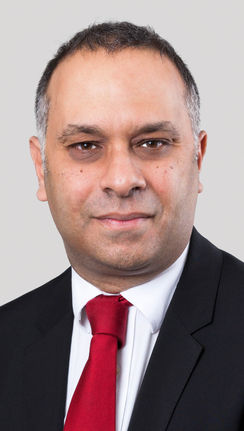Money Laundering
Money laundering can describe a range of circumstances where individuals or organisations deal in assets that are alleged to be ‘criminal property’, such as cash and other items from criminal conduct.
Typically, the focus of money laundering proceedings is said to have derived from the supply of drugs or the proceeds of fraudulent activity.
We understand that there are many reasons why people conduct their finances in the manner they do. This may not be in line with the expectations of law enforcement agencies but may still be entirely innocent.
Our expert team has the experience, knowledge and expertise to fight your corner.
 Our Crime team have been ranked in the Chambers & Partners 2025 legal directory. The team was described as “experienced in financial crime” and were praised for their excellent “level of service and responsiveness.”
Our Crime team have been ranked in the Chambers & Partners 2025 legal directory. The team was described as “experienced in financial crime” and were praised for their excellent “level of service and responsiveness.”
 “HJA’s fraud team is distinct in the market due to its longstanding experience of its senior lawyers on a wide range of matters, prosecuted by multiple agencies. They work closely with their general crime team, as well as disputes that feed into other closely linked areas of law, such as civil disputes and employment.” – Legal 500, 2025
“HJA’s fraud team is distinct in the market due to its longstanding experience of its senior lawyers on a wide range of matters, prosecuted by multiple agencies. They work closely with their general crime team, as well as disputes that feed into other closely linked areas of law, such as civil disputes and employment.” – Legal 500, 2025
we can help.
0330 822 3451request a call back.
The result of money laundering
You or your business may become caught in a money laundering investigation because it is alleged you knowingly dealt with criminal property.
An allegation of money laundering can result in either:
- A criminal investigation and prosecution
- Civil action by the law enforcement agencies such as civil recovery proceedings
- Regulatory action, such as the revocation of authorisations for example by HMRC.
"I WILL RECOMMEND HJA TO EVERYONE I KNOW, ONCE AGAIN THANK YOU SO MUCH."
Why choose Hodge Jones & Allen?
Our financial crime and regulatory team is ranked amongst the best in the UK and is supported by an exceptional criminal defence department. We can provide exceptional advice to guide you through these allegations.
We have extensive, unparalleled experience of acting in defending money laundering allegations for both individuals and organisations.
Our expert team have defended matters involving a range of investigatory authorities including the National Crime Agency (NCA), HM Revenue and Customs (HMRC) and the Counter Terrorist unit of the Metropolitan Police.
We recognise how high the stakes are and the importance of protecting your business, reputation, freedom and career. We can adeptly guide you through the process.
From the start, we make sure that all your concerns can be addressed by our multi-disciplinary team. What happens at an initial interview or a police station can affect what happens with the rest of the case.
We know that an investigation can mean that there is a serious risk to your reputation and we assist in managing this process.
Our experience means that there are few areas of business that we haven’t dealt with. We can quickly understand how the business works and why transactions occur in the way that they do. This gives us a head start to prepare your case and act as proactively as we can.
"NEVER LET ME DOWN. ALWAYS DOING THEIR BEST WHATEVER THE SITUATION."
Our forensic approach to analysis, our ability to call on decades of work with the very best accountants, financial experts and specialist barristers means that we can manage your case quickly and efficiently.
Money Laundering offences are often subject to restraint or confiscation proceedings. Our Financial Crime and Regulatory Team are mindful of this from the start. We can advise on how your decisions affect these proceedings and make clear and strategic plans to successfully defend your case.
Are their different types of money laundering?
Under the Proceeds of Crime Act 2002, there are three main types of money laundering offence:
- Concealing, disguising, converting, transferring, or removing ‘criminal property’. The property must be shown to be the proceeds of criminal conduct. To be guilty of this offence, the person must know or suspect that the property is the proceeds of criminal conduct.
- Arranging, or involvement in a process that facilitates the acquiring, retaining, or controlling of criminal property. It is enough that a person suspects that the property at the centre of this arrangement represents the benefit of criminal behaviour.
- Procuring, utilising or simply possessing criminal property. It is enough for the prosecution to prove that the person suspected that the property was criminal.
If I'm convicted of money laundering, what can I be sentenced to?
The maximum sentences for money laundering offences is 14 years – but actual sentences can range from a fine to a lengthy prison sentence.
Sentencing is not an exact science. There are a range of sentencing options open to the court. When facing sentence for an allegation of money laundering, it is vital to have a specialist financial crime lawyer to secure the lowest possible sentence for you.





















